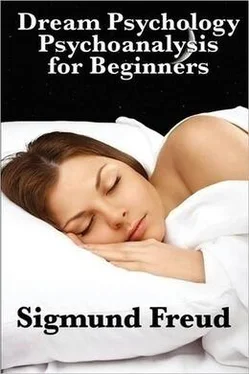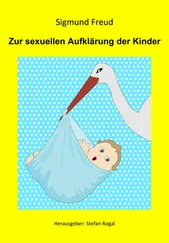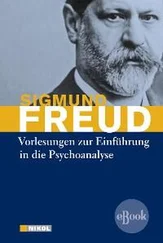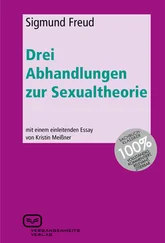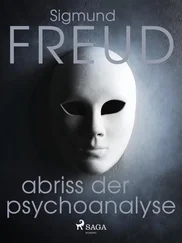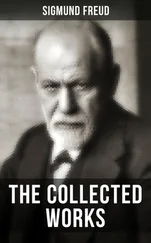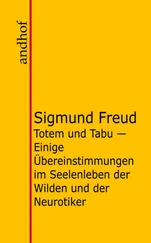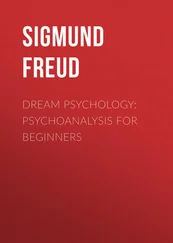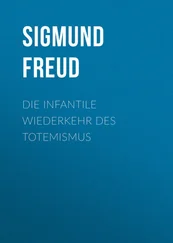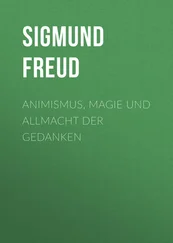Sigmund Freud - Dream Psychology
Здесь есть возможность читать онлайн «Sigmund Freud - Dream Psychology» весь текст электронной книги совершенно бесплатно (целиком полную версию без сокращений). В некоторых случаях можно слушать аудио, скачать через торрент в формате fb2 и присутствует краткое содержание. Год выпуска: 2014, Издательство: epubBooks Classics, Жанр: Психология, на английском языке. Описание произведения, (предисловие) а так же отзывы посетителей доступны на портале библиотеки ЛибКат.
- Название:Dream Psychology
- Автор:
- Издательство:epubBooks Classics
- Жанр:
- Год:2014
- ISBN:нет данных
- Рейтинг книги:3 / 5. Голосов: 1
-
Избранное:Добавить в избранное
- Отзывы:
-
Ваша оценка:
- 60
- 1
- 2
- 3
- 4
- 5
Dream Psychology: краткое содержание, описание и аннотация
Предлагаем к чтению аннотацию, описание, краткое содержание или предисловие (зависит от того, что написал сам автор книги «Dream Psychology»). Если вы не нашли необходимую информацию о книге — напишите в комментариях, мы постараемся отыскать её.
Dream Psychology — читать онлайн бесплатно полную книгу (весь текст) целиком
Ниже представлен текст книги, разбитый по страницам. Система сохранения места последней прочитанной страницы, позволяет с удобством читать онлайн бесплатно книгу «Dream Psychology», без необходимости каждый раз заново искать на чём Вы остановились. Поставьте закладку, и сможете в любой момент перейти на страницу, на которой закончили чтение.
Интервал:
Закладка:
We thus see that the day remnants, among which we may now include the indifferent impressions when they participate in the dream formation, not only borrow from the Unc. the motive power at the disposal of the repressed wish, but also offer to the unconscious something indispensable, namely, the attachment necessary to the transference. If we here attempted to penetrate more deeply into the psychic processes, we should first have to throw more light on the play of emotions between the foreconscious and the unconscious, to which, indeed, we are urged by the study of the psychoneuroses, whereas the dream itself offers no assistance in this respect.
Just one further remark about the day remnants. There is no doubt that they are the actual disturbers of sleep, and not the dream, which, on the contrary, strives to guard sleep. But we shall return to this point later.
We have so far discussed the dream–wish, we have traced it to the sphere of the Unc., and analyzed its relations to the day remnants, which in turn may be either wishes, psychic emotions of any other kind, or simply recent impressions. We have thus made room for any claims that may be made for the importance of conscious thought activity in dream formations in all its variations. Relying upon our thought series, it would not be at all impossible for us to explain even those extreme cases in which the dream as a continuer of the day work brings to a happy conclusion and unsolved problem possess an example, the analysis of which might reveal the infantile or repressed wish source furnishing such alliance and successful strengthening of the efforts of the foreconscious activity. But we have not come one step nearer a solution of the riddle: Why can the unconscious furnish the motive power for the wish–fulfillment only during sleep? The answer to this question must throw light on the psychic nature of wishes; and it will be given with the aid of the diagram of the psychic apparatus.
We do not doubt that even this apparatus attained its present perfection through a long course of development. Let us attempt to restore it as it existed in an early phase of its activity. From assumptions, to be confirmed elsewhere, we know that at first the apparatus strove to keep as free from excitement as possible, and in its first formation, therefore, the scheme took the form of a reflex apparatus, which enabled it promptly to discharge through the motor tracts any sensible stimulus reaching it from without. But this simple function was disturbed by the wants of life, which likewise furnish the impulse for the further development of the apparatus. The wants of life first manifested themselves to it in the form of the great physical needs. The excitement aroused by the inner want seeks an outlet in motility, which may be designated as "inner changes" or as an "expression of the emotions." The hungry child cries or fidgets helplessly, but its situation remains unchanged; for the excitation proceeding from an inner want requires, not a momentary outbreak, but a force working continuously. A change can occur only if in some way a feeling of gratification is experienced—which in the case of the child must be through outside help—in order to remove the inner excitement. An essential constituent of this experience is the appearance of a certain perception (of food in our example), the memory picture of which thereafter remains associated with the memory trace of the excitation of want.
Thanks to the established connection, there results at the next appearance of this want a psychic feeling which revives the memory picture of the former perception, and thus recalls the former perception itself, i.e. it actually re–establishes the situation of the first gratification. We call such a feeling a wish; the reappearance of the perception constitutes the wish–fulfillment, and the full revival of the perception by the want excitement constitutes the shortest road to the wish–fulfillment. We may assume a primitive condition of the psychic apparatus in which this road is really followed, i.e. where the wishing merges into an hallucination, This first psychic activity therefore aims at an identity of perception, i.e. it aims at a repetition of that perception which is connected with the fulfillment of the want.
This primitive mental activity must have been modified by bitter practical experience into a more expedient secondary activity. The establishment of the identity perception on the short regressive road within the apparatus does not in another respect carry with it the result which inevitably follows the revival of the same perception from without. The gratification does not take place, and the want continues. In order to equalize the internal with the external sum of energy, the former must be continually maintained, just as actually happens in the hallucinatory psychoses and in the deliriums of hunger which exhaust their psychic capacity in clinging to the object desired. In order to make more appropriate use of the psychic force, it becomes necessary to inhibit the full regression so as to prevent it from extending beyond the image of memory, whence it can select other paths leading ultimately to the establishment of the desired identity from the outer world. This inhibition and consequent deviation from the excitation becomes the task of a second system which dominates the voluntary motility, i.e. through whose activity the expenditure of motility is now devoted to previously recalled purposes. But this entire complicated mental activity which works its way from the memory picture to the establishment of the perception identity from the outer world merely represents a detour which has been forced upon the wish–fulfillment by experience. [21] Le Lorrain justly extols the wish–fulfilment of the dream: "Sans fatigue sérieuse, sans être obligé de recourir à cette lutte opinâtre et longue qui use et corrode les jouissances poursuivies."
Thinking is indeed nothing but the equivalent of the hallucinatory wish; and if the dream be called a wish–fulfillment this becomes self–evident, as nothing but a wish can impel our psychic apparatus to activity. The dream, which in fulfilling its wishes follows the short regressive path, thereby preserves for us only an example of the primary form of the psychic apparatus which has been abandoned as inexpedient. What once ruled in the waking state when the psychic life was still young and unfit seems to have been banished into the sleeping state, just as we see again in the nursery the bow and arrow, the discarded primitive weapons of grown–up humanity. The dream is a fragment of the abandoned psychic life of the child. In the psychoses these modes of operation of the psychic apparatus, which are normally suppressed in the waking state, reassert themselves, and then betray their inability to satisfy our wants in the outer world.
The unconscious wish–feelings evidently strive to assert themselves during the day also, and the fact of transference and the psychoses teach us that they endeavor to penetrate to consciousness and dominate motility by the road leading through the system of the foreconscious. It is, therefore, the censor lying between the Unc. and the Forec., the assumption of which is forced upon us by the dream, that we have to recognize and honor as the guardian of our psychic health. But is it not carelessness on the part of this guardian to diminish its vigilance during the night and to allow the suppressed emotions of the Unc. to come to expression, thus again making possible the hallucinatory regression? I think not, for when the critical guardian goes to rest—and we have proof that his slumber is not profound—he takes care to close the gate to motility. No matter what feelings from the otherwise inhibited Unc. may roam about on the scene, they need not be interfered with; they remain harmless because they are unable to put in motion the motor apparatus which alone can exert a modifying influence upon the outer world. Sleep guarantees the security of the fortress which is under guard. Conditions are less harmless when a displacement of forces is produced, not through a nocturnal diminution in the operation of the critical censor, but through pathological enfeeblement of the latter or through pathological reinforcement of the unconscious excitations, and this while the foreconscious is charged with energy and the avenues to motility are open. The guardian is then overpowered, the unconscious excitations subdue the Forec.; through it they dominate our speech and actions, or they enforce the hallucinatory regression, thus governing an apparatus not designed for them by virtue of the attraction exerted by the perceptions on the distribution of our psychic energy. We call this condition a psychosis.
Читать дальшеИнтервал:
Закладка:
Похожие книги на «Dream Psychology»
Представляем Вашему вниманию похожие книги на «Dream Psychology» списком для выбора. Мы отобрали схожую по названию и смыслу литературу в надежде предоставить читателям больше вариантов отыскать новые, интересные, ещё непрочитанные произведения.
Обсуждение, отзывы о книге «Dream Psychology» и просто собственные мнения читателей. Оставьте ваши комментарии, напишите, что Вы думаете о произведении, его смысле или главных героях. Укажите что конкретно понравилось, а что нет, и почему Вы так считаете.
